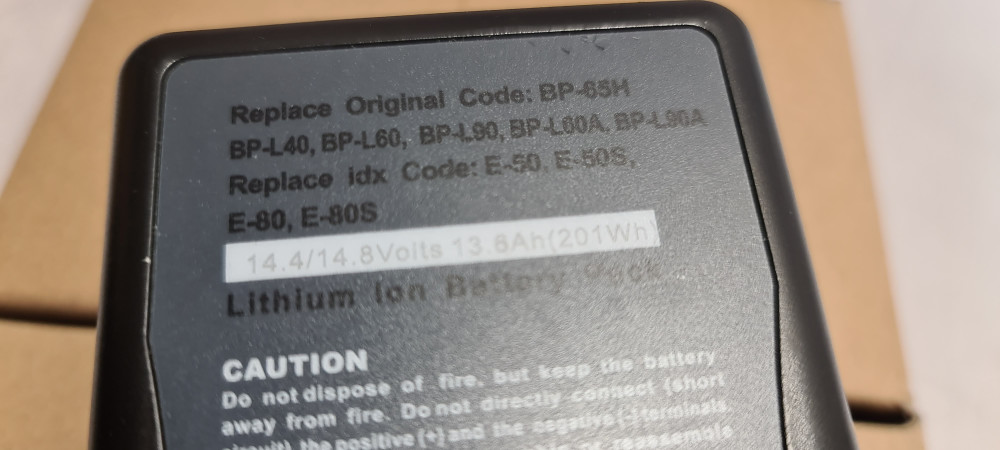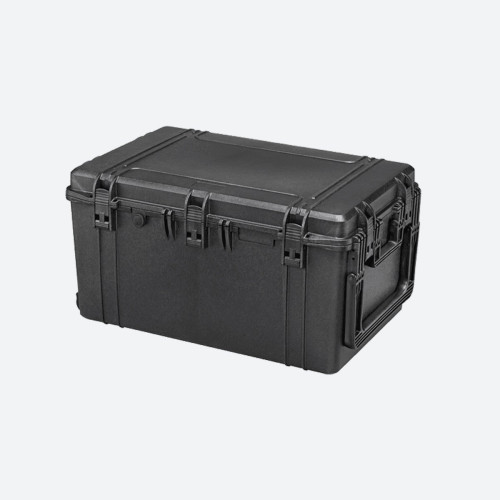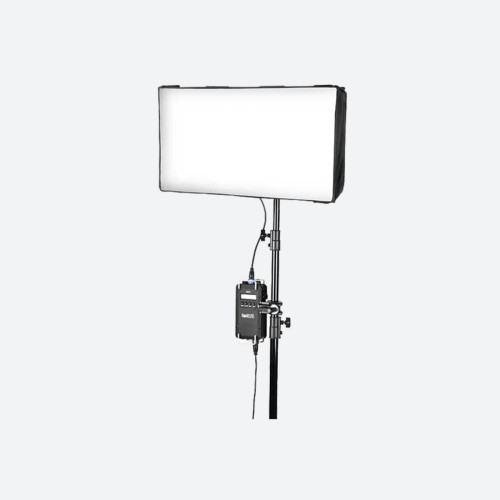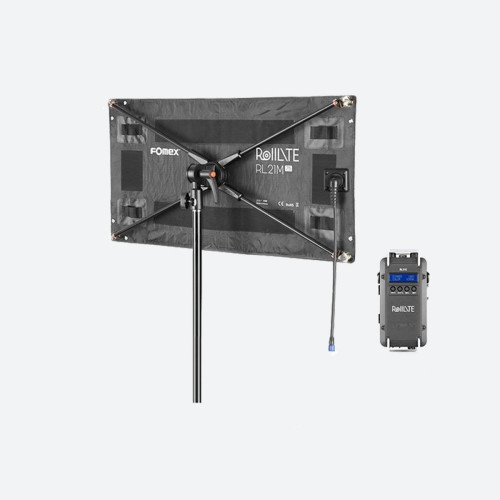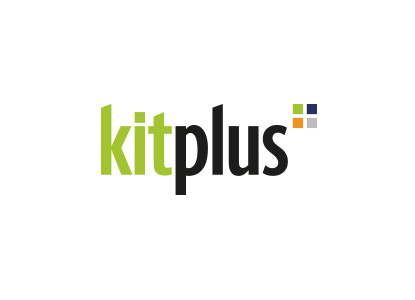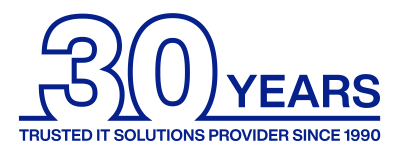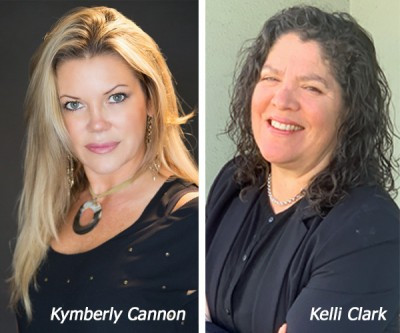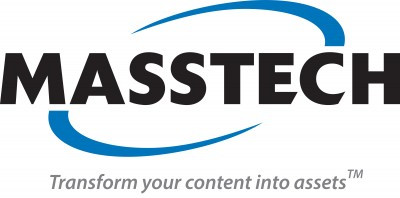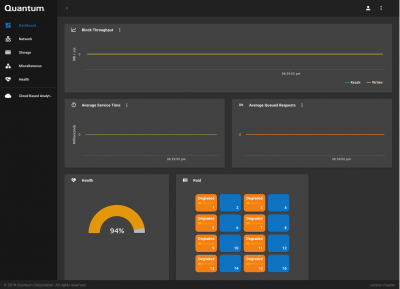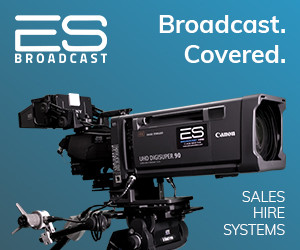Lights, Camera, Makohead Action
Author: Dennis Lennie
Published 1st December 2008
With the movie Quantum of Solace due to hit the big screens in October, audiences around the world are already gearing up for another huge blockbuster from the James Bond stable.
The movie, which began shooting at Pinewood studios in November 2007, will undoubtedly include the spectacular action sequences that are the hallmark of James Bond films. Indeed producer Michael Wilson has promised that this film will have ‘twice as much action’ as 2006's Casino Royale, in which Daniel Craig made his debut as the iconic secret agent.
During filming, one piece of equipment that was vital for successfully capturing many of these action shots was the revolutionary Makohead stabilisation unit, supplied to the Bond 22 production team by BPS UK Ltd. Bond 22 took the unit to Panama and Italy where it was used to film a number of action scenes that required a steady horizon.
John O'Reilly, managing director of BPS UK Ltd, says: “We’re really delighted that the Makohead has made its debut on a Bond film, especially as some of the original Makohead products were used on the 1960’s Bond movie, Dr. No. The Makohead is a stunning piece of equipment that not only does a fantastic job but is also very easy to use.”
Originally launched in 1954 by renowned inventor and underwater cinematographer Jordan Klein, Sr., Makohead Products include a range of housings and equipment that are specifically designed to facilitate underwater filming. The Makohead unit, which was launched in 2003, was developed in conjunction with Klein’s son, Jordan Klein, Jr., as a means of holding the horizon level while shooting on water. However, the unit’s ability to automatically detect level and resolve roll and pitch issues for the cameraman makes it ideal for any kind of action filming where the camera needs to be mounted on a moving vehicle.
Makohead units are only available for hire and are never sold. In fact they are so unique that only six of these units exist anywhere in the world – and BPS UK Ltd, which has the European distributorship for the Makohead Products brand, has four of them. Since their launch in 2003 BPS UK Ltd has hired them out for use on a wide variety of film and television projects including documentaries, commercials and full length feature films such as Miami Vice, Celestine Prophecy, Failure To Launch, Snakes on the Plane and Transporter 2.
How Does Makohead Work?
Thetechnological breakthrough that makes Makohead so special is its quick and easy mounting, which enables multiple camera set-ups within the same shoot day. This saves time and production money because crews don’t need specially trained technicians to assemble the unit.
At only 12\" tall and less than 50 pounds, the Makohead can be easily hand carried and can also be placed between a heavyweight production tripod and a normal camera head. Once the Mako Head has been locked on the tripod and levelled electronically, it operates on the principle of two pistons operating at 90 to each other, automatically pushing and pulling to level the base of the tripod head in response to the changes
the Makohead senses in the horizon. Because it is so versatile, it provides stabilization on a wide variety of camera platforms as well as eliminating the need to precisely level dolly tracks or camera cranes.
Makohead offers a full range of motion, from 90° tilt to 260° roll. It also does away with the need for noisy Gyros by incorporating state-of-the-art electronic level compensation that finds level within 60 seconds of activation. Speed of set up is enhanced by a single-pin connection to either the hard-mounted Threaded Stud (w/ Mitchell nut) or Makohead’s own Float Plate that greatly minimizes the effects of vibration and shock. Designed to automatically detect level, the Makohead can also tell whether it has been mounted vertically or under slung, and will adjust its electronics accordingly.
Using Makohead On A Shoot
One convert to Makohead is freelance cameraman Rob Llewellyn, who first trialled the unit on Discovery’s Shark Week. Since then he has used it on various documentaries, including The America’s Cup yacht race. He also recently demoed the unit to the BBC's Natural History department and as a result of that demo BBC cameramen have begun hiring Makoheads from BPS UK Ltd for their own filming projects.
“The first time I used Makohead I was amazed at how easy it was to set up,” he says. “All you need is common sense. You literally take it out of the box, install it onto your tripod, attach your own head onto it and put your camera on – you certainly don’t need a technician or any specialist knowledge.”
Llewellyn uses Makohead with his own equipment and has had no trouble fitting any of his cameras to it. He adds that the unit’s automatic level detection is ‘astounding’ and he is very impressed by its ability to stabilize the horizon.
“Having a solid horizon is really important, especially when you are filming on water,” he says. “In fact it’s important when you are filming from any moving vehicle because, without a stabilization unit like Makohead, you are affected by the force of any turn the vehicle makes and you tend to twist in the direction of travel. This can really mess up your shot. The need for proper stabilisation and automatic level detection has become even more difficult now that so much of the work we do is in High Definition. There is simply nothing on the market that will stabilise HD for the hire cost of a Makohead.”
Llewellyn tends to use Makohead in conjunction with a a Fujinon Optical Stabliser, which he attaches between the camera and the lens to reduce vehicle vibrations.
“Hiring Makohead units from BPS UK Ltd is very cost effective – and they always give me great service whenever I need equipment from them,” he says. “To get this kind of effect from any other stabilisation system on the market would be much more expensive and would probably involve a lot more technical know-how, possibly even a dedicated technician or engineer, which would considerably add to the cost.”
BPS UK Ltd has also recently supplied a Makohead to the set of Ondine, director Neil Jordan’s latest feature film. Starring Colin Farrell and Mexican-Polish newcomer Alicia Bachleda, it is a fantasy film about a mythical sea nymph who gets caught in the net of a fisherman and changes the lives of the people in his town. Jordan wrote the script himself, and the project is now shooting in Southern Ireland.
Given the subject matter, it was inevitable that cameraman Rupert Lloyd-Parry would be shooting a number of scenes at sea.
“I specified a Makohead because I thought the sea around Ireland might get rough, but in fact we’ve been shooting on very calm seas so haven’t really had a chance to put it to serious test,” he says. “However, when I have used it I’ve found it very easy to set up. There is a short instructional video on the BPS website which was invaluable and allowed me to use it straight from the box. Once in use, it is very effective at holding a steady horizon.”
How BPS UK Ltd Got Involved
BPS began its association with Makohead Products in 2006 when the company was looking for distribution for its recently introduced Makohead unit. BPS was recommended by existing customers and was quickly signed up to handle the European distribution.
“The unit fitted perfectly with our existing product range and was entirely suited to our customer base,” O’Reilly says. “As a business proposition, it is an interesting one for us because we can’t sell them - they are only available for hire. The reason for this is purely economic. Most film and broadcast production crews only need a Makohead for very specific projects where they have action sequences to shoot at sea or from moving vehicles. These units are very expensive to make, therefore it wouldn’t make sense for a production company to buy one and then have it sat in a box not being used.”
Although Makohead is a key product for BPS UK Ltd, the company’s main business is in sales, service and system integration. Established in 2003 by former cameraman/VT editor John O’Reilly, who has 20 years experience in equipment sales, and his business partner Helen Wise, the company has strong relationships with some of the biggest manufacturers in the broadcast industry, including Canon, Panasonic, Sony, IDX and Axon. As a leading supplier of audio and video equipment to the broadcast and film industries, it has a substantial International customer base ranging from freelance camera operatives to some of the largest multi-national corporations in the industry.
“BPS was established with the simple premise of providing the best products, the best advice and the best service,” O’Reilly says. “What makes BPS different and keeps our customer base growing is a mixture of personal service, comprehensive product range and great value pricing. We are very customer focused and are always happy to talk to our clients about their specific requirements. All of our staff are knowledgeable and experienced, which makes it possible for us to give sensible advice in this ever changing technical age. Our customers know that we will always try to offer the very best and most cost effective solutions.”
Alongside sales, BPS offers a complete system integration service that supplies complete project management from the original concept through to installation. The company’s system designers are widely regarded as among the best in the UK and have designed and installed some of the most technically advanced studios, post production suites, production galleries, OB vehicles and fly-away systems. Whether it’s a full turnkey project or simply a re-engineering of an existing system with the latest hardware, BPS designers ensure that customers always get the best from their investment.
Other services offered by BPS include supplying and building Non-Linear Editing packages and desktop solutions, arranging finance in conjunction with top leasing companies and a dedicated service department that offers a full range of engineering services.
O’Reilly says: “We understand that customers need to keep their facilities up and running and that time without working equipment is a ‘costly downtime’, so we always endeavour to repair the equipment in the shortest time possible, as well as providing a collection and delivery service should it be required.”
Customers who choose to work with BPS are quick to point out the added value that the company delivers. Mark Quinn, managing director of Dublin-based post production facility Highwire, has been a BPS client for a number of years. In recent months he has taken delivery of a number of VTR machines, HD monitors and four Avid systems, all supplied by BPS.
“I go to John and BPS because they are so much more than just box shifters and I know I’ll always get great service,” Quinn says. “When you are spending money on new technology you want to be sure you are making the right choice for your facility and your clients. The BPS team are very experienced and their advice is invaluable. I’ve actually had situations where John has talked me out of buying a particular product because he doesn’t think I’m making the right choice. I’ve always listened to him because he has his customer’s best interests at heart. This honest approach has actually saved me money on a number of occasions.”
BPS UK Ltd recently moved into a charming 19th Century converted fire station in Hampton, Middlesex, where it has the industry’s largest demo area for equipment. The company employs six staff, including Michael Wales, Richard Pearson and Ben Tompsett, who handle sales, and engineer Mark Bentley. All the boys are in great demand for their technical expertise and between them the BPS staff has over 70 years experience in sales.
The new premises is ideally situated for major transport links including the M3, A3 and M25, enabling fast delivery to all areas in and around London. BPS also provides a next day delivery service throughout mainland UK and an express service throughout the world.



